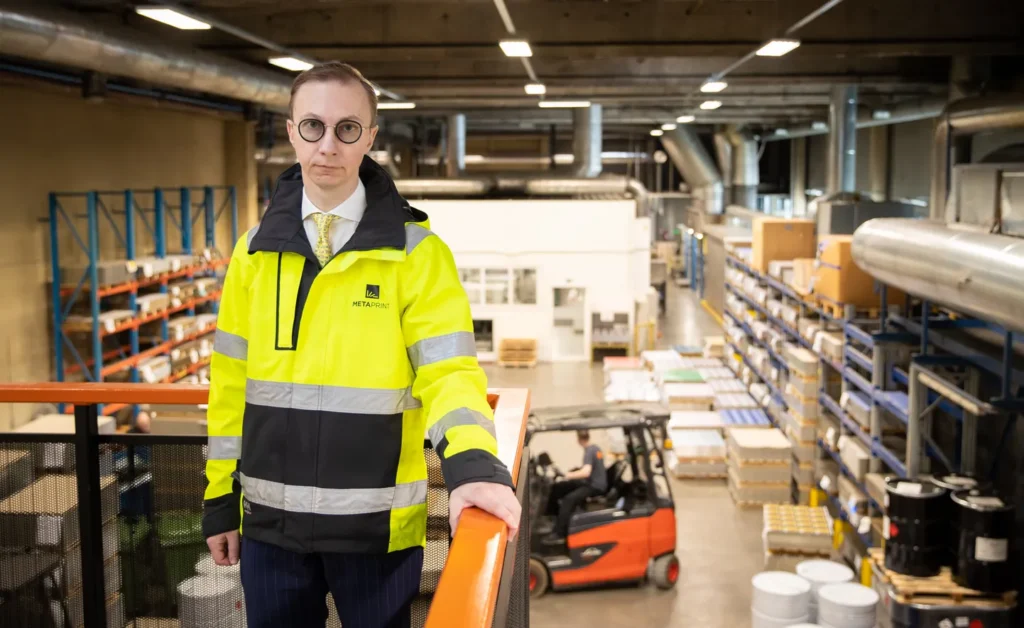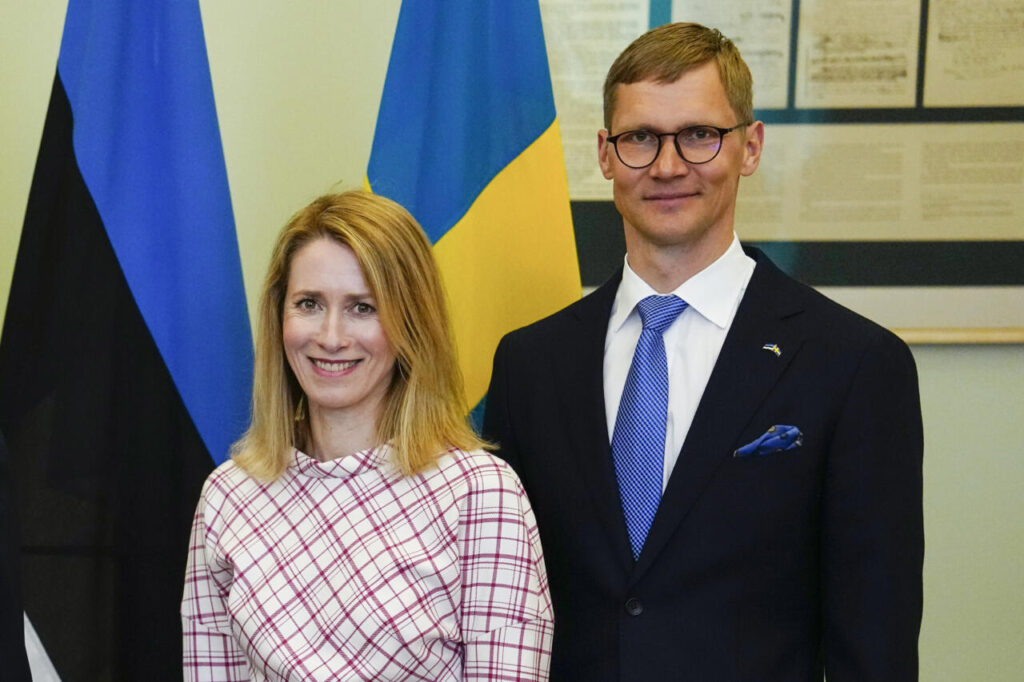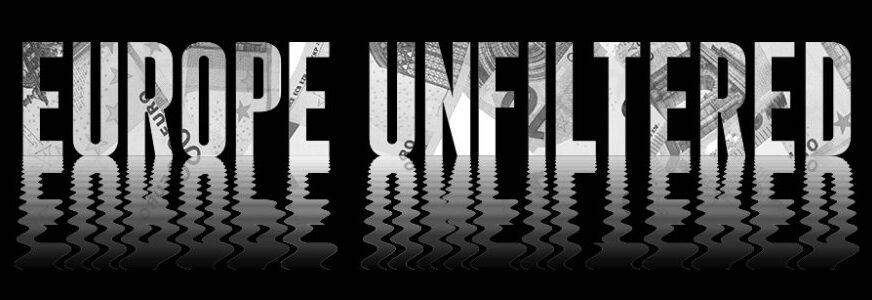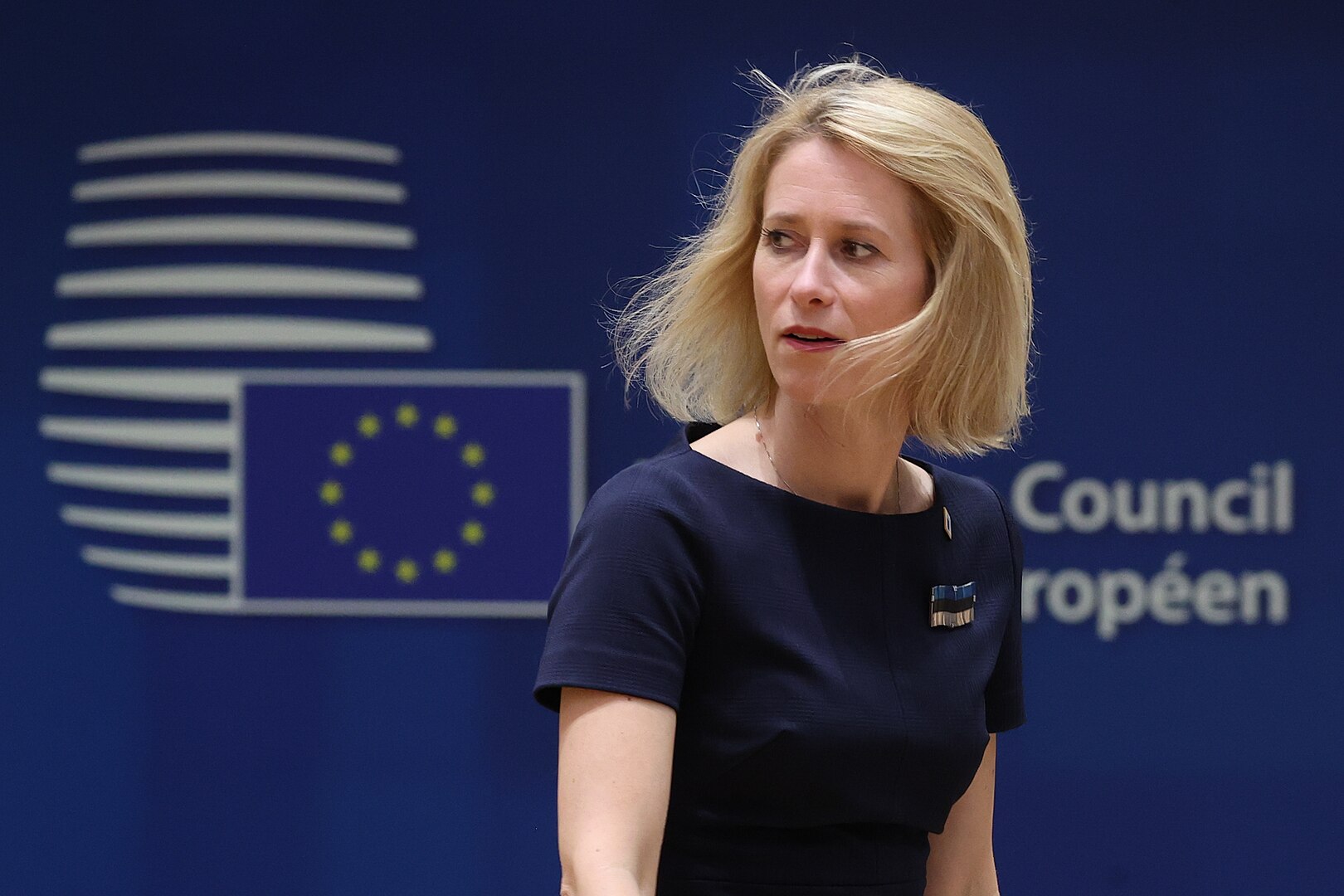“You are very vocal about … Ukraine and Russia and security … but in a hidden way … you are agreeing with Moscow.”
This was said by none other than freshly elected High Representative of the Union for Foreign affairs and Security Policy, former Estonian Prime Minister Kaja Kallas.
In an interview given to Financial Times on May 16, 2023, Kallas continued with explaining how long she “had to plead” with companies to find a “moral compass” and, after accusing them of hypocrisy, how she urged them to “decline deals that may result in Moscow accessing sanctioned goods”.
Words fit for a devoted transatlanticist and staunch Russia-hawk, “Europe’s New Iron Lady”, who also evoked morals when she declared that Ukraine had to be admitted to the European Union, because “there was a moral duty, to do so”.
A strong advocate for freedom and accountability and international cooperation. One of the first persons to suggest that Russia must be brought to justice for war crimes and for the invasion once the war ends.
An awardee of the European Prize for Political Culture, the Transatlantic Leadership Award, the Hayek Prize for defending democratic values, the Grotius Prize and the Marion Dörnhoff Prize for International Understanding and Reconciliation. Among others.
And of course, the head of the EU’s foreign policy apparatus for the next few years to come.
It’s rather unfortunate that Kallas turned out to be yet another politician, who walked the talk and talked the walk.
Barely four months after the above cited interview.
Estonia’s ERR media network broke the news on August 23, 2023, that Kallas’s husband, Arvo Hallik was co-owner of a transport company, Stark Logistics, that has continued doing business in Russia since the start of the war in Ukraine.
In their defence, Kallas and Hallik both stated that Stark Logistics was “only” assisting an Estonian client, Metaprint and that the aim of the work was to “end Metaprint’s production in Russia”.

Unfortunately, according to the media, the latter company happened to sell more than €17 million worth of goods to Russia since February 2022. The owner of the company, Martti Lemendrik (by the way, Hallik’s business partner in Stark Logistics) corrected the number, admitting that the real amount was much higher: between February and August of 2023, they sold €29,817,709-worth of materials.
Thus, instead of wrapping up its activities, the company continued to work well after the war against Ukraine began.
In fact, Metaprint’s Russian business partner (well a Russian company OOO Aeroprom, owned by Metaprint CFO Emeri Lepp) was planning to expand its operations with the help of their Estonian counterparts.
To make matters worse, EPL reported that Metaprint was having business with Sergei Anatolevich Kolesnikov, a Russian oligarch currently under sanctions in Poland and Ukraine. And with Tyumenskie Aerozoli, a Russian company that sells tear gas to the Russian Ministry of Interior. Anybody wondering for what they might have used Metaprint’s metal cans?
Instead of returning factory equipment from Russia, Stark Logistics’ trucks carried raw material to Russia. For its services of transportation, Stark Logistics received €1.5 million.
Another of their arguments was that Estonian law prohibited only state-owned companies from doing business in Russia. In their defence, Estonian Internal Security Service also established that Stark Logistics did nothing illegal.
Kallas, as the daughter of Estonia’s former prime minister Siim Kallas and a seasoned lawyer (before her political career, she worked for prestigious corporate law firms in France, Finland and Estonia) would surely know how to follow the letter of the law, right?
The spirit of the law (or moral) is a different thing, apparently.
Though maybe for somebody, whose family had first-hand experience of “Russia’s imperialistic dream”, as she put it, because several family members were transported to Siberia (when Stalin ordered mass-deportations of “anti-Soviet” Baltic citizens), it shouldn’t be so.
Neither for someone, who was deemed to be “one of the most lucid and courageous world leaders now” and who has set a high standard for a “robust and serious response” to Russia’s act.
Kallas also said that she was “not involved in her husband’s business”, had no idea that Stark Logistics continued to operate in Russia, but that she was “absolutely certain and confident about … that my husband’s companies are not engaging in any immoral activity”. In an interview given to ERR, she also said that as she was the prime minister of Estonia, she didn’t have time to run a side business.
Arvo Hallik repeated the same statements, insisting on Kallas having been unaware of his business activities. Then apologized, claiming that he had no idea that his business dealings might have been immoral.

He also claimed that neither did they talk about the fate of the €350,000 loan, Kallas gave to his companies (well, to his one-person company Novaria Consult and through it to Stark Logistics and Stark Warehouses), because “the substance of these investments has never been the subject of any discussion between us”.
That’s either the proof of some serious trust between two partners or is something that is hard to believe in. Rather unlikely, in fact, especially since she visited Metaprint’s facilities and events on the side of her husband.
Estonian President Alar Karis wasn’t convinced by the couple’s arguments, either. He emphasized that the scandal diminished Estonia’s credibility. Karis further warned that “the business activities of Prime Minister Kaja Kallas’ family member vis-à-vis Russia have raised many questions in the media and in society and have put the spotlight on the head of the government and the values Estonia must follow”.
And many shared that view, including former parliamentary deputies, like Mihhail Lotman, who stated that while Hallik has done nothing illegal, “our prime minister is the head of state and her actions were wrong (…) the rest is a matter of moral compass”.
As the scandal grew, Arvo Hallik announced that he would sell his 25 percent stake in Stark Logistics. He also resigned as the company’s chief financial officer and also stepped down from the board of Restate Property Developers, another company with business ties in Russia.
According to media reports, he is still co-owner or Stark Warehousing, though.
Kaja Kallas’s approval ratings, once soaring thanks to her steadfast support to Ukraine, and making her the most popular politician in Estonia, just evaporated. Opinion polls conducted in the period all showed a high-level of dissatisfaction, as 57-69 percent of the respondents demanded her resignation.
Her reaction to those results was simple: she screamed “witch-hunt” and refused to resign. Her party (Estonia’s ruling Reform Party) re-elected her as party chairman in November with two thirds of the vote (the rest abstained). The party’s approval ratings have not been seriously affected by Kallas’s husband’s involvement in the affair, after all.
In the end, Kallas survived the scandal at the helm of Estonia’s government. She did so despite President Alar Karis’s remarks, in which he evoked the same morals when he urged Kallas to resign, “it would have spared her, her loved ones, the effectiveness of the government and the credibility of messages coming out of Estonia. But everyone needs to make their own decisions in such a situation, after weighing the moral problem”.
The apple didn’t fall far from the tree, though. Kallas’s father, Siim Kallas was also involved in two scandals. Neither of those acts (he was first accused of embezzling public money and corruption), then with issuing unauthorized bonds) were deemed illegal, only of questionable morality.
In Kallas’s view, obviously there are no moral conflicts between her staunch anti-Russia rhetoric (that also included, among others, demands for stronger rules put in place on transit of dual use goods amidst growing concerns about sanctions evasions) and her husband’s business deals. It must surely not mean that “in a hidden way” she is agreeing with Moscow.
In most countries, it would be considered double standards. In Europe, it still doesn’t disqualify one from becoming the chief of Europe’s foreign policy, in fact, handed her a bigger megaphone to demand higher moral standards when it comes to dealing with Russia. Maybe this time she will live up to those standards, as well.

